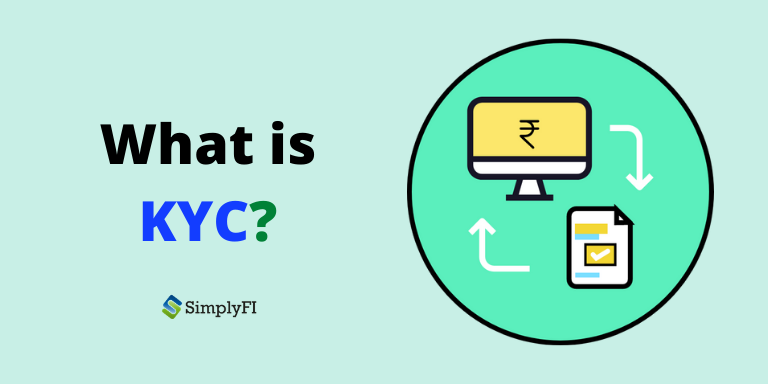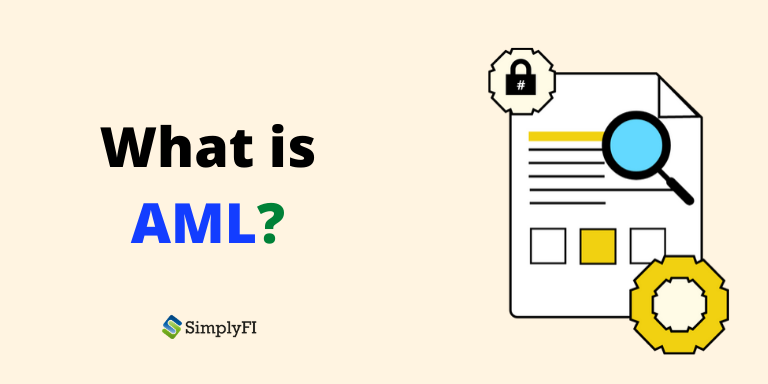Ashutosh Kumar March 3, 2020 0
How is Blockchain solving the KYC & AML issues?
Know Your Customer(KYC) and Anti-money Laundering(AML) is very essential for the identification of clients and also for preventing and tracking crime. But it can also be a major burden for financial institutions such as banks because of the time consuming and expensive process.
In fact, according to data financial institutions spend around $60-$70 million per year for collecting information and KYC compliance. The reason for such a huge expenditure is the extensive amount of voluminous work and significant bank resources that are needed to comply with all the KYC/AML regulations.

In the year 2002, RBI had said that each Bank is required to get data of their client’s identity and address and so KYC/AML compliances are something that every bank has to deal with. The reason behind collecting data is simply that the banks don’t trust your personality until you produce a document consisting of your detail.
The issues related to KYC/AML compliances can be upgraded with the help of Blockchain technology.
In this article, you will know about KYC and AML and how blockchain can solve the issues related to compliances.
KYC: What is KYC?

Know Your Customer(KYC) are the certain details that the business keeps as an end criteria for the identification of customers who are interested in doing business with them.
KYC compliances are supported by a huge number of Banks and certain organizations. KYC regulations and policies have been extending for quite a while and have turned out to be of great value all around. Some predominant issues that are being faced by the current KYC compliances include issues related to corruption, terrorist financing, and illegal tax avoidance.
AML: What is AML?

Anti Money Laundering(AML) can be described as the set of directions or laws that are made to prevent the act of producing income through illegal activities. The issue with the current AML is that it is not able to keep pace with the evolving complexity and volume of financial transactions which becomes a problem for keeping a check on Laundering activities.
These issues are allowing criminals to find more approaches to process illegal financial exchanges.
How blockchain will be used for KYC and AML?
Blockchain technology has proved to be very effective and compelling for cryptocurrencies to run successfully but it’s not the only thing that it can be utilized for.
The decentralized system is being utilized for various use cases covering different areas of businesses and industries. The authenticated and secured manner of recording and transferring data is what that can be utilized by KYC/AML. Blockchain will act as an incredibly secured platform to records data and information related to KYC & AML compliances.
A customer would be required to create a block that will contain all the information related to KYC & AML compliances if the Blockchain platform is utilized. The details and information would then be encrypted and the user will be provided with a digital passkey that has to be entered to see the data.
So, How do financial institutions can benefit from it? The answer is whenever a person is willing to sign up with some banks then he/she will only need to provide the passkey to these financial institutions which will help the banks to get access to the user info and then automatically it.
Here are some benefits of utilizing Blockchain technology for KYC & AML.
-
Creation of a common KYC & AML registry that could be utilized by various banks & financial institutions. This would drastically increase the process and reduce the expenses of KYC compliances. A bank representative could be provided with the passkey to get access to the compliance data, in case a customer signs up with a bank. This would help avoid the hurdle of walking the client through the major part of this data each and every time.
-
KYC & AML registry could be utilized for intra-bank purposes also. This would help banks to overcome the issue of dealing with all the compliances all over, again and again, every time a customer wishes to buy a new service or a product. This will be highly beneficial for banks as it will reduce the expenses and speed up the procedures.
CONCLUSION
Blockchain has already proved it’s worth for cryptocurrencies and also will be very effective for developing solutions for Supply Chain, Trade Finance and banking. It is said that the technology would dominate the industry over the next few years. Bankings and financial institutions have been the major beneficiaries of this decentralized technology. The huge expense of $70 million in KYC compliance is drastically reduced which has helped banks to onboard many customers smoothly.

